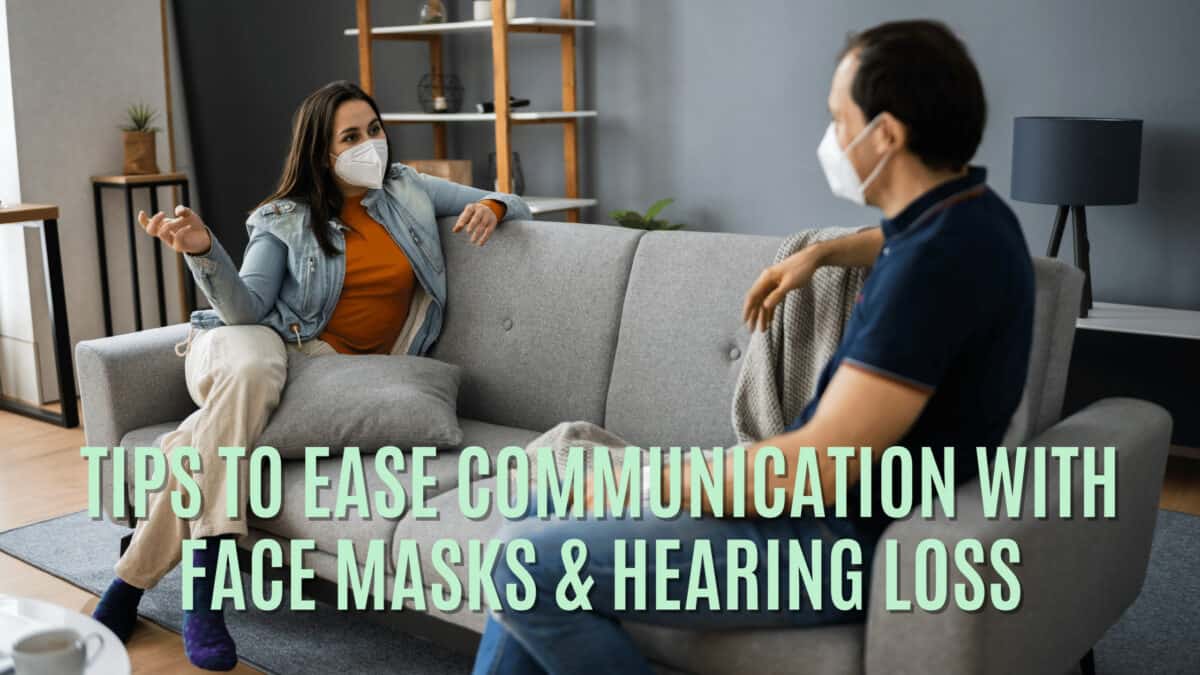Precautions during the pandemic have been an adjustment for everyone, but not least for those with some amount of hearing loss. Facemasks and social distancing are each an impediment to good communication on their own, but when paired together can make talking to one another—especially those with whom we are less familiar—much more difficult than usual, even for those with normal hearing
If we are struggling to hear people under normal circumstances, facemasks will make it even more difficult. When our hearing begins to decline, even a little bit, we start to rely on lipreading and pay more attention to facial expressions. While research has indicated that we can learn to read facial expressions even when a person’s mouth is covered by a mask, we are still only getting a portion of the picture this way.
A survey conducted by the Hearing Loss Association of America in conjunction with Cochlear, a manufacturer of cochlear implants, asked 1,400 people with hearing loss whether facemasks were creating a communication barrier during the pandemic. Respondents were mostly between 55 and 90 years old, living at home or in independent or assisted living communities. 95% of respondents reported having communication issues which they attributed to mask-wearing, and over half said they felt more anxious and isolated as a result. What’s more, 70% said that pandemic precautions have made them more aware of their hearing loss.
While we are now seeing the rollout of vaccines and may eventually ease away from using facemasks and social distancing on a day-to-day basis, it will be at least a few months before we are in the clear. In the meantime, here are a few tips you can keep in mind to make communication a little easier.
Get Hearing Aids
If you have difficulty hearing, make an appointment for a hearing test and find out whether your hearing could benefit from hearing aids. If you’re putting off getting hearing aids, consider that 95% of people who get them are glad they did, when asked after one year. The communication issues you’re having today may disappear with the use of hearing aids, so consider them strongly if you’re not currently wearing them.
Prepare to Disclose Hearing Loss
Keep a handwritten sign or message with you, or make the lock screen on your smartphone into a message. Indicate that you have hearing loss, or that hearing is difficult for you when masks are worn. This will let others know you have a hearing issue so they will be more likely to help you than to think you’re being rude or ignoring them. Try to let people know the best things they can do to help you understand them better.
Prepare to Keep Conversations Short and Conserve Energy
If home deliveries are an option, it is best to take advantage of them when possible. Try to handle whatever research you need to do by utilizing the internet, calling in advance, or emailing. It will likely be difficult to get answers to questions in person while you and your conversation partner are both wearing masks, socially distanced, and possibly separated by plexiglass. Try to think of anything you can do before running an errand to make the errand run smoothly once you are out and about.
Smartphone Apps and Other Technologies
Speech-to-text apps such as Ava, Otter and Google Live Transcribe (Android only) allow you to read a text version of what a person has just spoken. While you need to alert people that you’re utilizing this technology (lest they think you’re recording them without permission), it can make conversations run much more smoothly. Paired with a microphone to improve the pickup of speech at a distance, this can be a very effective way to communicate while masks are being worn and social distance is being observed.
You might also consider a long-range microphone to work with your hearing aids. A Phonak Roger Pen, for example, or a portable FM device might be helpful. Consult your hearing healthcare professional about what options might work with your hearing aids and be best for you.
Take Care!
Remember, the pandemic is a temporary situation. Acknowledge the range of emotions you experience over the course of difficult interactions. It can be really helpful to talk to someone about your experiences.
And if you are not currently wearing hearing aids, make an appointment for a hearing test today with our team at Hearing Wellness Solutions and see what we can do to help make your daily interactions easier. While they may be even more helpful now, once precautions are no longer necessary, you’ll still appreciate what hearing aids can do for you!


